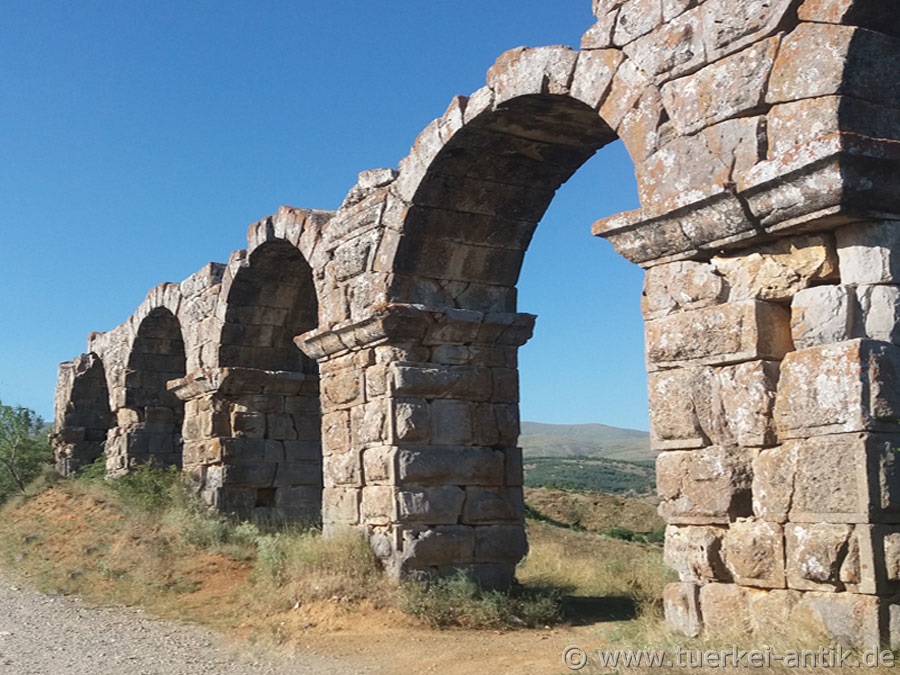 |
|
Ancient aqueducts in Turkey Antiochia ad Pisidiam |
|
|
|
||
| Other names: | ./. | ||
| Roman province: | Pisidia | ||
| Location: | Yalvaç, Yalvaç county, Province Isparta | ||
| The history of Antiochia in Pisidien: | |||
|
Antioch of Pisidia (Latin Antiochia ad Pisidiam, also Antiochia Caesarea or Colonia Caesarea) is one of several cities founded and named after Antiochos by selective rulers. The city quickly developed into one of the most important Roman cities in Asia Minor. Already in the 1st century A.D. several senators from Antioch can be proven.
Excavations in Antioch have uncovered a large Byzantine basilica, a theatre, a spa, fountains, an Augustus temple and an aqueduct. The museum in Yalvac houses finds from Antioch and the early history of the landscape. |
|||
|
|
|||
|
|
|||
 |
|||
|
|
|||
| Stones of the pressure pipe | |||
| Photos: @chim, Monika P. | |||
| Translation aid: www.DeepL.com/Translator | |||
| Source: Wikipedia and others | |||
|
|

